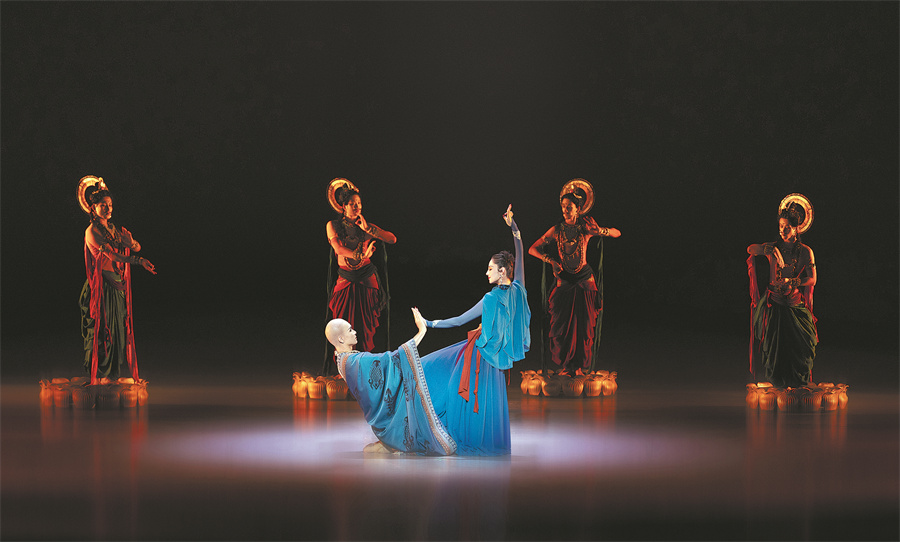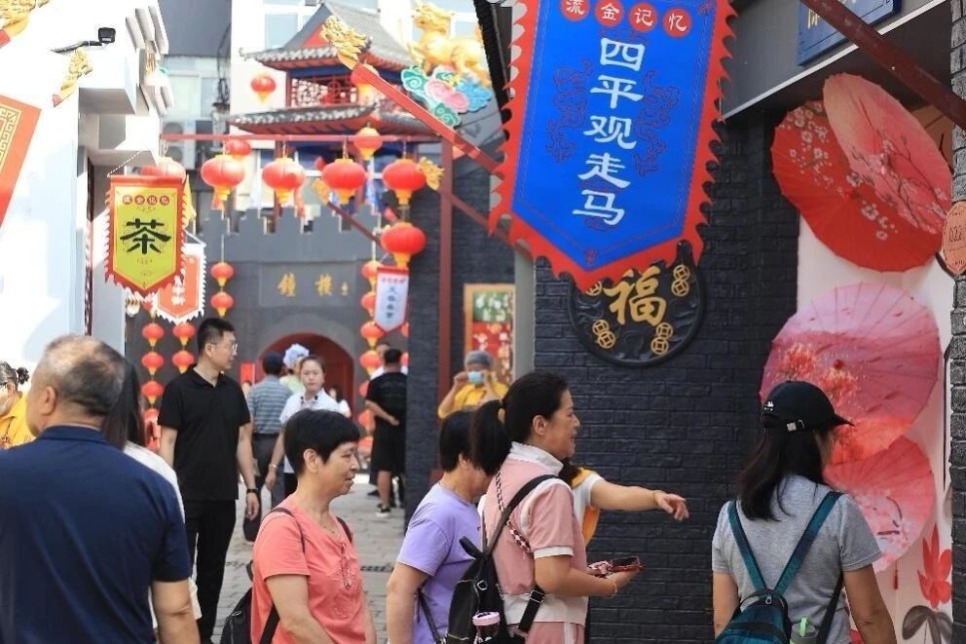A Buddhist scholar in motion


In Chang'an, Kumarajiva was widely respected by the court, and Buddhists, young and old, flocked to him. The emperor, who looked to Kumarajiva as his teacher, gave him the title of guoshi, or national preceptor. Kumarajiva led a team of translators supported by the imperial court. He and his disciples translated a series of Buddhist scriptures and systematically introduced the philosophical ideas of the Mahayana school of Buddhism to China, which has continued to influence Chinese culture.
Studying the life story and spiritual journey of Kumarajiva "gave me much spiritual comfort, and helped me regain inner peace," says Han Ziyong, the playwright of the dance production. "We are constantly anxious and stressed in today's fastpaced modern world. Because of Kumarajiva's dedication, perseverance, and philosophy, I found a longlost cultural hero."
Unlike Monk Xuanzang (602-664), whose travels to India provided inspiration for Journey to the West, one of China's greatest novels, Kumarajiva is less well-known.
"He made a great impact on Chinese culture," Han says. In writing the script for the dance production, he hopes to bring audiences closer to Kumarajiva's life, as well as the culture and beauty of his hometown, Qiuci.
"I used to stand by the statue of Kumarajiva. The beautiful curve of his back was captured by a golden lining at sunset," he says. "I felt as though he was a grain of sand, blown by the winds of fate, all the way to Chang'an.
























